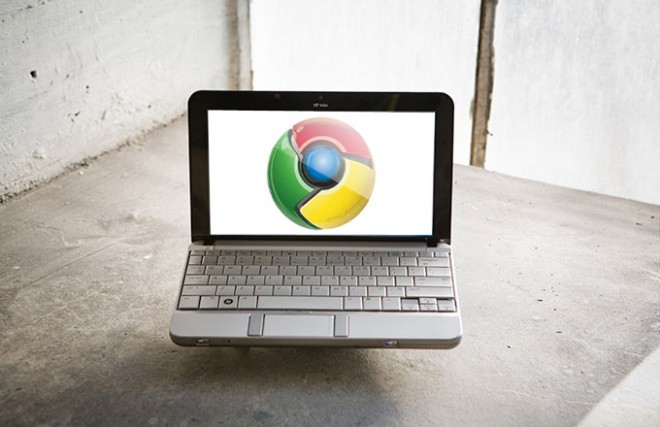Google unveiled the beta version of its new Chrome operating system this morning, as well as an early test version of its branded netbook. Chrome OS is an attempt by the search giant to help drive computing to the cloud — and to the popular web-based services that have become Google’s forté.
The company’s release of its netbook OS comes after a year of development and at a time when cloud computing — and the simpler machines that access applications on distant servers rather than running them on a hard drive — seems to have passed a sort of tipping point of respectability. Google’s chief competitors (Microsoft, Apple, etc.) have been touting their own respective cloud-based approaches for almost two years now.
Chrome OS relies entirely on web-based applications for basic productivity tasks like mail, document editing, photo sharing, social networking and reading news. Its inner workings are based on Google’s own Chrome browser, which has been available for nearly two years. The premise is that one no longer needs to install software programs on a general-purpose personal computer and instead use web apps running on top of a lightweight and fast OS.
After booting the OS and signing in with a Google account, one can go to a Web Store and install single-serving apps that are enhanced versions of those already available on the web. The download-and-install option provides a few more convenient features, like the ability to answer e-mail, work on your docs and play games without a web connection.
Google CEO Eric Schmidt showed up at Tuesday’s event to drive home his belief that the time is right to release Chrome OS. “We finally have a viable third choice for an operating system on the desktop,” said Schmidt.
Looking for more Google news and announcements? You’ll love Android Gingerbread Looks Great on Video and Nexus S by Google.













